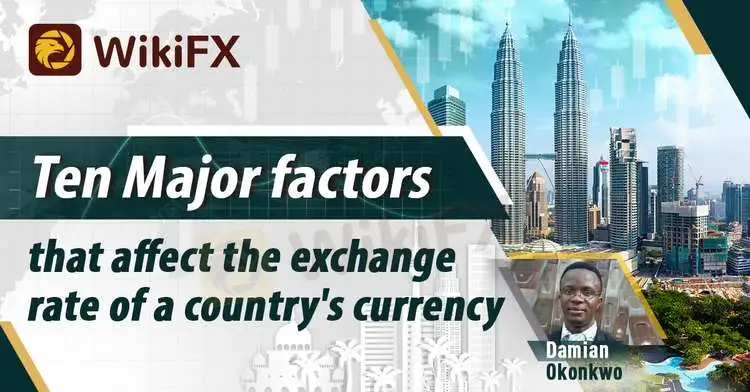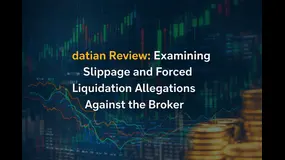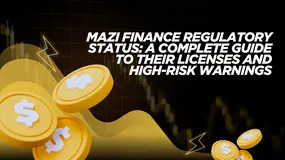Abstract:Several factors affect the exchange rate of a country's currency ranging from: an interest rate hike, monetary and fiscal policies, unemployment rate, GDP, Consumer Price Index, Inflation, Quantitative Easing, Elections, Balance of trade, and International Debts. Every forex trader must pay great attention to these factors to assist him/her in making decisions on which currency pair to either buy or sell in the forex market daily.

By: Damian Okonkwo

Ten Major factors that affect a country's currency exchange rate
A. Interest rate hike: An increase in the interest rate attracts investors to invest in a given currency. Interest rate hikes for the US dollar for instance always pushed investors to withdraw from risky assets such as crypto and commodities and invest in government bonds as well as the country's currency.
B. Monetary and fiscal policies: Various monetary policies such as: overnight interest rates, main refinancing rates, etc; affects the exchange rate of a country's currency positively when they are increased and vice-versa. Also, the fiscal policies which refers to government taxations, could attract or disperse investors.
C. Unemployment rate: High unemployment rate decreases the value of a country's currency. An increased job provision supports economic growth and attracts investors.
D. Gross Domestic Product (GDP): The GDP is often used to measure the economic progress made so far within a year. An increase in the GDP influences the country's currency positively.
E. Consumer Price Index (CPI): The CPI measures the change in the prices of goods and services delivered to financial consumers. A high CPI reading means the inflation rate is high and affects the currency negatively. Also, high CPI often leads the Central Banks to hike the interest rate.
F. Inflation: Inflation is seen as the devaluation of a country's currency. In this case, the buying power diminishes. Thus buyers now spend more to purchase a given product. Inflation reduces the country's exchange rate drastically.
G. Quantitative Easing (Tapering): QE is used by the central banks to lower the interest rates by buying a large number of bonds and other securities from the government. This pushes more money into circulation and in turn; lowers the country's interest rate. QE also called tapering devalues the country's exchange rate.
H. Government competency: Electing competent leaders into power strengthens investors' confidence and attracts more business into the country. This favors the country's currency.
I. Balance of trade: a country with more exports than imports shows the country is very productive. Thus, an increase in the exportation of goods means more demands will be made for the country's currency. This increases their exchange rate.
J. International Debts: A country burdened with international debts does not seem palatable to investors. This decreases the demand for the country's currency.











